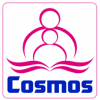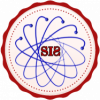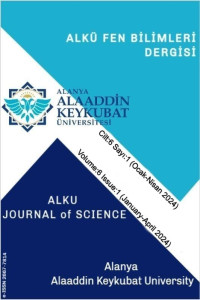Research Article
Aim & Scope
ALKU Journal of Science is a peer-reviewed journal published three times a year in all engineering sciences and basic sciences by Alanya Alaaddin Keykubat University Rafet Kayış Engineering Faculty. In our journal, original research studies and compilations are published in Turkish and English.
This journal is a peer-reviewed and open access international engineering sciences journal. No fee is charged from authors during the evaluation and publication processes.
Our journal is an international refereed journal published in Turkish and English. The journal publishes original or compilation articles from all engineering branches and basic sciences related to engineering.
Author Guidelines
The writing rules of our journal are as follows:
Articles must be written in Turkish or English.
Articles uploaded to the journal should not have been previously published in any journal or should not be under evaluation.
Articles that have previously been presented at a conference but have not been published in journals can be uploaded to the journal system, provided that they are stated as a footer on the first page of the text.
The submission file must have a .doc or .docx extension.
Text; It should be written single-spaced, in 11-point font. All figures, pictures and tables should be placed in appropriate sections within the text.
The article title should be in 14-point bold font and appropriate to the content of the article.
All article sections except the Abstract, Acknowledgments and Reference sections should be numbered. Article organization should be done in the order of Abstract, Article Main Text, Acknowledgments (if necessary) and References.
Equation editor programs should be used for mathematical expressions and each equation should be numbered right-justified.
Acknowledgments regarding individual or institutional financial support provided for the research should be included in the acknowledgments section at the end of the article.
The article should be arranged in the order given below:
a.) Summary: The summary should consist of a maximum of 150 words. There should not be any abbreviations or mathematical expressions in the abstract. Key words to be written in italics must consist of at least 4 (four) words and there must be a line space between them and the abstract.
b.) Main Text: Abbreviations of any expression, technical terms and symbols should be defined where they are first used in the main text of the article, and then these uses should be continued throughout the article. All sections should be numbered and formatted in the following order:
1. Introduction,
2. Material and Method,
3. Findings and Discussion,
4. Conclusion.
The headings Materials and Methods and Results and Discussion may also have subheadings if necessary. (2.1, 3.1, etc.)
c) References: All references should be numbered in square brackets. The formats of the sources are given in the article template.
d) Acknowledgments: If there are individuals, institutions or organizations that received help, they can be stated in this section. Otherwise, this topic will not be opened.
Ethical Principles and Publication Policy
The publication ethics and open access policy of ALKU Science journal are regulated in line with the guidelines and policies published by the Committee on Publication Ethics (COPE) in open access, based on the "Code of Conduct and Best-Practice Guidelines for Journal Editors - 2011" rules. In this context, the responsibilities of the editor, referees and authors are stated below:
a) Responsibilities of Editors:
1. The journal editor decides on the suitability of the applications and whether they will be published. When making this decision, the editor does not take into account the race, gender, belief, nationality or political views of the author(s), but rather based on the conformity of the submission with the journal's publication policy, originality and importance.
2. The journal editor cannot share personal information about the application with third parties (referees, scientific committee members, publisher, etc.).
3. Editors or referees cannot use the information and documents in applications that are rejected or in the publication stage in their own research without the written permission of the author.
b) Responsibilities of Referees:
1. Referees support the editorial board in checking the suitability of the application for publication.
2. Referees should try to be fair, impartial and constructive when evaluating the submitted work.
3. Referees make suggestions to authors to improve applications and eliminate possible errors.
4. Referees must inform the editor when they feel inadequate about the application sent for review or when they cannot complete the review on time.
5. Referees are responsible for ensuring the security of the information and ideas contained in the applications. They cannot share them with third parties or use them in their own research.
c) Authors' Responsibilities:
1. Studies based on fake/fraudulent data are unacceptable. Authors must guarantee the accuracy and originality of the data.
2. If the study involves a human element, the necessary permissions from the participants and Ethics Committee Approval from the appropriate institutional authorities must be obtained. This approval should be stated in the "Method" section of the article and the signed Ethics Committee Approval should be uploaded to the system together with the article. In cases where the study does not require ethics committee approval, this should be clearly stated in the "Method" section.
3. Written permission must be obtained from the relevant institution or person(s) for "data collection tools, tables, graphs, maps and other visuals" that belong to third parties and have copyrights used in the study.
4. During the article submission process, the conditions stated in the "application list" and accepted by the responsible author who sent the article are deemed to have been accepted by the other authors.
5. All authors who have made a meaningful contribution to the article should be included in the study as co-authors. It is inappropriate to include people who have not contributed to the co-author list and will not be tolerated.
6. Authors must agree to make reasonable revisions suggested by our journal's referees and editors. If the author refuses to make revisions without acceptable reasons, the submitted manuscript will be rejected.
7. All authors are required to correct any errors in the submitted article and retract any inaccurate information.
8. Authors must send the copyright form when submitting their articles.
Ethics Committee Approval:
With the decision of ULAKBİM dated February 25, 2020, it was stipulated that "For all branches of science (including social sciences), separate Ethics Committee Approval must be obtained for clinical and experimental studies on humans and animals that require an ethics committee decision, and this approval must be stated and documented in the article." All kinds of research conducted with qualitative or quantitative approaches that require collecting data from participants using survey, interview, focus group study, observation, experiment and interview techniques are considered in this context.
Indicating that Ethics Committee Approval has been obtained: In studies conducted with humans without age restrictions, it must be stated that the necessary permissions have been obtained from the relevant committees on the first and last pages of the article and in the Method section, institution, date and number information must be given. In addition, a copy of the Ethics Committee approval must be uploaded to the system along with other article files during the application. In studies that do not require ethics committee approval, this should be clearly stated in the Method section.
Copyright:
In accordance with the ULAKBİM Code of Ethics, scales, surveys and visuals belonging to others cannot be used without permission: Citing the person or institution that owns the copyright is not enough. The fact that such works are copyright-free or that the necessary permissions have been obtained from the copyright owner for their use should be written in the form of a footnote, indicating the person (or institution) and date.
Reporting Situations That Do Not Comply with Ethical Principles:
If there is a behavior that does not comply with the ethical principles regarding the editors, referees and authors of our journal, or an unethical situation is detected regarding an article in the evaluation process, in early view or published, please inform us via message to alkufbd@alanya.edu.tr. If it is determined that the data used in the articles has been manipulated, distorted or fabricated data has been used, this situation will be officially reported to the relevant institutions, especially the institution where the article author works, and the article will be rejected or withdrawn if published. Our journal has the right to request raw data or analysis results from the authors based on the evaluation made by the editor and referees.
Publication Policy
1. ALKU Journal of Science is a free, open access journal. Additionally, authors are not charged any submission fees or article evaluation fees for articles sent to the journal.
2. Studies submitted to the journal must be prepared in accordance with the Writing Rules.
3. The evaluation and referee processes of the submitted articles are completed within three months under normal circumstances.
4. The Editorial Board ultimately decides whether the submitted articles will be published or not.
5. The results of the evaluation of the work are communicated to the authors through the Dergi Park system.
6. Studies without the necessary corrections are not taken into the publication process.
Source:
Committee on Publication Ethics (COPE). (2011, March 7). Code of Conduct and Best-Practice Guidelines for Journal Editors. Access: https://publicationethics.org/files/Code_of_conduct_for_journal_editors_Mar11.pdf
Indexes
Journal Boards
Editor
Associate Editor
Dr. Öğr. Üyesi Gökhan CANBOLAT
Alkü/Makine Mühendisliği Bölümü
Subject Editors

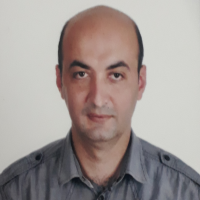
Alper Kürşat UYSAL, 2002 yılında Türkiye Selçuk Üniversitesi'nden bilgisayar mühendisliği alanında lisans derecesi ve 2005 ve 2013 yıllarında sırasıyla Anadolu Üniversitesi'nden bilgisayar bilimi alanında yüksek lisans ve doktora derecesi aldı. 2016-2017 yılları arasında 12 ay boyunca ABD'deki Michigan Üniversitesi Dearborn'daki Elektrik ve Bilgisayar Mühendisliği Bölümü'nde Misafir Araştırma Görevlisi olarak çalıştı. 2021'den beri Türkiye'deki Alanya Alaaddin Keykubat Üniversitesi Bilgisayar Mühendisliği Bölümü'nde Doçent Doktor olarak görev yapmaktadır. Araştırma ilgi alanları arasında desen tanıma, metin sınıflandırması ve özellik seçimi yer almaktadır. 2024 yılı itibariyle Ziyaretçi Doçent olarak ABD'deki Michigan Üniversitesi Dearborn'daki Elektrik ve Bilgisayar Mühendisliği Bölümü'nde araştırma faaliyetlerinde bulunmaktadır.


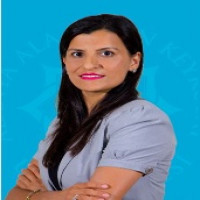

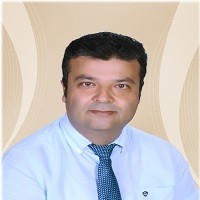

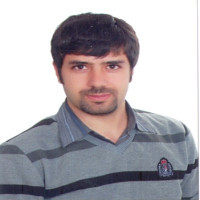
Editorial Board



Bilsay Sümer is an associate professor at the Department of Mechanical Engineering, Hacettepe University. He received the B.S. degree in mechanical engineering from the Middle East Technical University, Ankara, Türkiye, in 2003, both the M.S and the Ph.D. degree in mechanical engineering from Carnegie Mellon University, Pittsburgh, PA, in 2009. He is the holder of over 10 national and international patents. He has authored and co-authored over 75 scientific publications in international and national peer-reviewed journals and conferences. He is an expert in measurement technology, sensor and actuators, smart materials and structures, contact mechanics and tribology, medical devices, flexible electronics and mechanical vibrations. He has been involved in many projects (NSF and national funding) as a researcher and coordinator in the field of intelligent sensors, actuators and smart materials.
Francesco Tornabene (nicknamed by his students: "The Lord of The Shells and Beyond") was born in Bologna, January 13, 1978. School-leaving examination in a classical liceo achieved at Liceo Classico "San Luigi" in Bologna in 1997. Patent for Industrial Invention: "Clutch for High Performance Automobiles" Question BO2001A00442 filed on 13-07-2001 in National Patent Bologna (Italy). Degree in Mechanical Engineering (Structural Mechanics) obtained at the Alma Mater Studiorum - University of Bologna on 23/07/2003. Title of Thesis: "Dynamic Behavior of Cylindrical Shells: Formulation and Solution". First position obtained in the competition for admission to the PhD in "Structural Mechanics" in December 2003. Winner of the scholarship, "Carlo Felice Jodi" for a degree in Structural Mechanics in 2004. Ph.D. in "Structural Mechanics" at the Alma Mater Studiorum - University of Bologna on 31/05/2007. Title of PhD Thesis: "Modeling and Solution of Shell Structures Made of Anisotropic Materials". Associate Professor at University of Salento.
Technical Editor
Dr. Öğr. Üyesi Gökhan CANBOLAT
Alkü/Makine Mühendisliği Bölümü
Language Editors

Dr. Öğr. Üyesi Gökhan CANBOLAT
Alkü/Makine Mühendisliği Bölümü
Layout

Dr. Gurkan Celik, is a researcher and entrepreneur specializing in Shared Mobility Systems, Micromobility Optimization, and Smart City Transportation Solutions. He earned his doctorate (Ph.D.) in Electrical & Electronics Engineering from Akdeniz University, Türkiye, in 2025. His doctoral research focused on developing data-driven strategies to optimize shared mobility services, integrating user behavior, IoT-based operational management, and sustainable urban transport planning. He holds an M.Sc. in Electrical & Electronics Engineering (2019) from Akdeniz University and a B.Sc. in Electronics & Communication Engineering (2015) from Kocaeli University.
Alongside his academic achievements, Gurkan gained international research experience in advanced smart city applications, signal processing, medical image analysis, and intelligent transportation systems, strengthening his interdisciplinary expertise in applying technology to real-world mobility challenges. He currently serves as a Research Assistant at ALKÜ and is the general manager and co-founder of Ant ARGE, a startup dedicated to innovative R&D solutions in mobility technologies and smart city infrastructure. His work combines engineering, data science, and urban innovation to deliver sustainable, efficient, and future-oriented transportation solutions.

